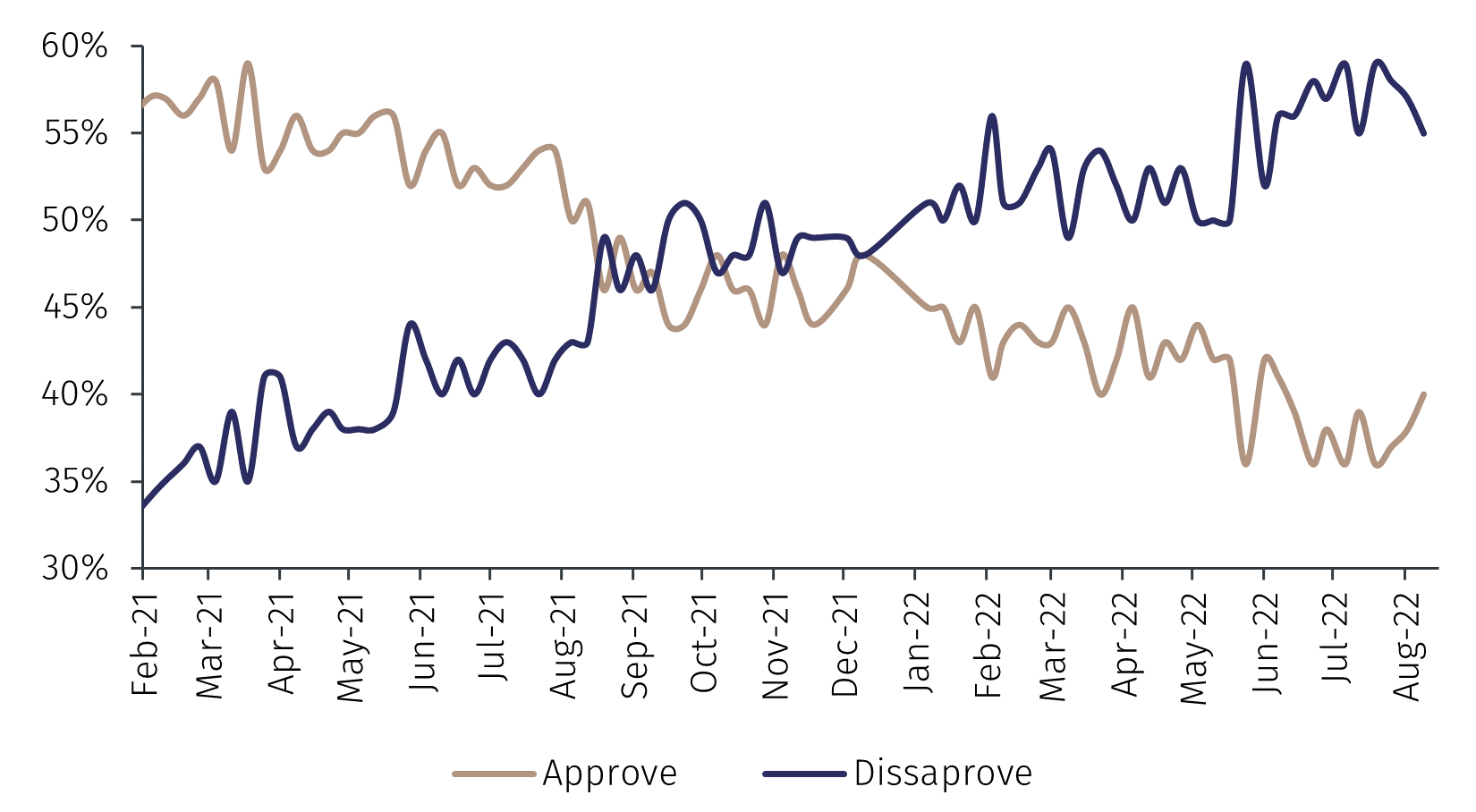5 Dos And Don'ts: Succeeding In The Private Credit Job Market

Table of Contents
DO: Network Strategically within the Private Credit Industry
The private credit industry thrives on relationships. Building a strong network is crucial for uncovering hidden job opportunities and gaining valuable insights.
Leverage LinkedIn:
LinkedIn is your primary tool for connecting with professionals in the private credit space.
- Follow industry leaders: Stay updated on industry trends and news by following key figures and companies.
- Customize your profile: Highlight your skills in areas like credit analysis, underwriting, financial modeling, and portfolio management. Use keywords like "private debt," "alternative lending," "direct lending," and "mezzanine financing."
- Join relevant groups: Participate actively in discussions within groups focused on private equity, debt funds, credit investing, and alternative finance. Networking events and discussions are often held here.
- Attend virtual and in-person events: Expand your network by attending online webinars and in-person industry conferences.
Attend Industry Conferences and Events:
Conferences provide invaluable networking opportunities and insights into current market trends.
- Research relevant events: Focus on conferences specializing in private debt, alternative lending, distressed debt, or credit strategies.
- Prepare talking points: Develop concise summaries of your experience and career goals, ready to share with potential contacts.
- Engage actively: Don't just observe – participate in discussions, ask insightful questions, and actively seek out opportunities to connect with professionals.
- Follow up: Always send a thank-you email or LinkedIn message within 24 hours of meeting someone.
Informational Interviews:
Informational interviews are a powerful tool to learn about specific roles and gain valuable insights.
- Identify targets: Research professionals working in private credit roles at firms that interest you.
- Prepare thoughtful questions: Ask about their career path, the challenges they face, and advice for aspiring professionals.
- Express genuine interest: Show your enthusiasm for the industry and your commitment to a career in private credit.
- Follow up with a thank-you note: Reiterate your gratitude for their time and highlight key takeaways from the conversation.
DON'T: Neglect Your Financial Modeling Skills
Private credit roles demand strong analytical and quantitative abilities. Mastering financial modeling is non-negotiable.
Master Excel and Financial Modeling Software:
Proficiency in Excel and specialized financial modeling software is essential.
- Practice building models: Become proficient in building LBO models, DCF analyses, and other key valuation models used in private credit.
- Enhance your skills: Take online courses, workshops, or pursue relevant certifications to enhance your expertise.
- Showcase your skills: Highlight your modeling abilities on your resume and be prepared to demonstrate your skills during interviews.
Underestimate the Importance of Accuracy and Efficiency:
In the fast-paced world of private credit, accuracy and efficiency are paramount.
- Develop strong analytical skills: Practice interpreting financial statements, identifying key risks, and making sound investment decisions.
- Prioritize clear communication: Develop the ability to present complex financial data in a concise and understandable manner.
- Improve data analysis: Become comfortable working with large datasets and utilizing data analysis tools to identify trends and insights.
DO: Tailor Your Resume and Cover Letter to Each Private Credit Role
Generic applications rarely succeed in a competitive market. Each application should be customized.
Highlight Relevant Experience and Skills:
Tailor your resume to each specific job description.
- Quantify your achievements: Use metrics to showcase your impact (e.g., "Improved portfolio performance by 10%").
- Use targeted keywords: Incorporate keywords from the job description to demonstrate your relevance.
- Maintain a professional format: Ensure your resume is visually appealing, easy to read, and error-free.
Showcase Your Understanding of Private Credit Strategies:
Demonstrate your knowledge of various strategies within private credit.
- Research the firm's strategy: Understand the specific investment strategies employed by the firm you are applying to.
- Use industry-specific terms: Demonstrate your understanding of terms like "senior secured debt," "unitranche financing," and "distressed debt investing."
- Stay updated on trends: Show your awareness of current market trends, challenges, and regulatory changes.
DON'T: Underprepare for Private Credit Interviews
Thorough preparation is crucial for success in private credit interviews.
Practice Behavioral and Technical Interview Questions:
Prepare for a range of questions.
- Use the STAR method: Structure your answers to behavioral questions using the STAR method (Situation, Task, Action, Result).
- Practice technical questions: Review common technical questions related to financial modeling, credit analysis, and valuation.
- Prepare your own questions: Asking insightful questions demonstrates your interest and engagement.
Neglect Research on the Firm and Interviewers:
Thorough research shows your genuine interest and commitment.
- Understand their investment strategy: Research the firm's investment thesis, recent transactions, and portfolio companies.
- Learn about the interviewers: Look up the interviewers on LinkedIn to understand their backgrounds and experience.
- Demonstrate cultural fit: Research the firm's culture and values to demonstrate your potential fit within the organization.
DO: Follow Up After Each Interview
A strong follow-up can solidify your candidacy.
Send Thank-You Notes:
Express your gratitude and reiterate your interest.
- Personalize your notes: Tailor your thank-you note to each interviewer, highlighting specific aspects of your conversation.
- Reiterate your qualifications: Reemphasize your key qualifications and your enthusiasm for the opportunity.
- Maintain professional communication: Maintain a professional and courteous tone throughout the process.
Maintain Contact:
If you haven't heard back within a reasonable timeframe, follow up politely.
- Express continued interest: Briefly reiterate your interest in the position and your continued enthusiasm.
- Avoid being overly persistent: Keep your follow-up concise and professional, avoiding excessive or demanding communication.
Conclusion
Successfully navigating the private credit job market demands strategic planning and meticulous execution. By diligently following these dos and don'ts – from strategic networking and mastering financial modeling to tailoring your applications and preparing thoroughly for interviews – you'll significantly increase your chances of landing your desired private credit role. Don't delay; start implementing these tips today to make your mark in the competitive private credit job market!

Featured Posts
-
 Getting My Switch 2 Preorder The Game Stop Method
Apr 26, 2025
Getting My Switch 2 Preorder The Game Stop Method
Apr 26, 2025 -
 Luxury Carmakers Face Headwinds In China Case Studies Of Bmw And Porsche
Apr 26, 2025
Luxury Carmakers Face Headwinds In China Case Studies Of Bmw And Porsche
Apr 26, 2025 -
 Stock Market Valuations Bof As Argument For Investor Calm
Apr 26, 2025
Stock Market Valuations Bof As Argument For Investor Calm
Apr 26, 2025 -
 A Critical Military Base Understanding The Us China Power Struggle
Apr 26, 2025
A Critical Military Base Understanding The Us China Power Struggle
Apr 26, 2025 -
 Open Ais Chat Gpt The Ftc Investigation And Its Potential Impact
Apr 26, 2025
Open Ais Chat Gpt The Ftc Investigation And Its Potential Impact
Apr 26, 2025
